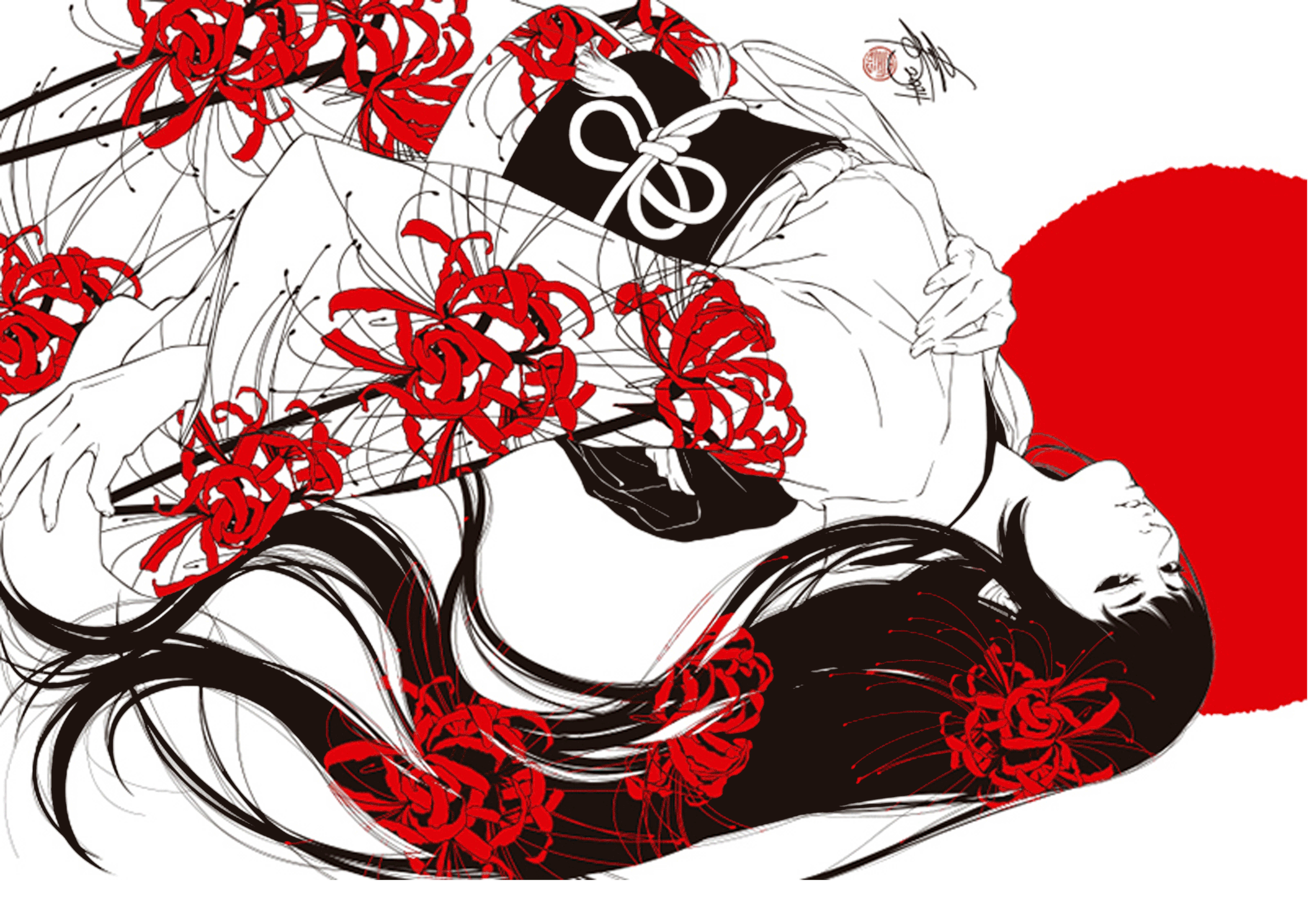Painting by Uemura Shōen (1918)
In the spring of ’99, Haruka quit her job, didn’t she?
She did, yes. She told me it was because she had been working non-stop since she graduated from school and now wanted to take it easy. I asked her if I could take it easy, too, but she wasn’t very excited about that idea. The odd thing is—apart from her father dying when she was in high school, which couldn’t have been easy—Haruka had never really had it all that hard.
How so?
Like me, Haruka was born in 1966. According the Chinese calendar, this was a once-in-six decades Year of the Horse, called the Hinoe Uma, or Fire Horse.[1] Superstition had it that people born in this year have “bad personalities” . . .
Those Chinese have certainly got your number!
Listen. The superstition is even less flattering for women born in that year: the Japanese believe that women born in the Year of the Fire Horse are so headstrong that they will end up driving their husbands to an early grave, a concern widespread enough that the birth rate actually plummeted in Japan in 1966.[2] Haruka used to tell me that thanks to the superstition, it was a breeze getting into the schools of her choice. There was never much competition. The same was true when she started job-hunting: no shortage of work for a cute, young woman with big tits. If only I . . .
Had large breasts?
If only I had been a Japanese girl born in 1966. Anyways, whether you want to believe it or not, Haruka fit that stereotypical image of the Fire Horse perfectly—stubborn, overbearing, selfish. I often joked that sooner or later she was going to kill me. So, it wasn’t all that surprising to me that she would one day decide she was going to take it easy and become “a housewife”. What did surprise me, though, was when she told me she was going to visit Mexico.
Mexico?
I had a Mexican friend who was running a small restaurant here in town. Haruka became friends with a woman who was part-timing at the restaurant (and having an affair with my friend, but that’s another story). Well, one thing led to another and Haruka and the woman made plans to travel to Mexico City together.
And Peadar was now entertaining the prospect of being able to spend the start of summer without the Missus.
Yes, well, let’s just say that the idea of my wife retiring no longer sounded all that bad to me. The possibilities were tantalizing. So, I told Haruka if you’re going all the way to Mexico, you might as well go to Portland and visit my family, too. And, if you’re going to go all the way there, you might as well stay for at least a month. After all, there is no better time to be in the city than in the summer . . .
How unselfish of you, Peadar!
Oh, the points I scored with the young housewives I was teaching back then. They would say things like, “My husband would never let me go abroad by myself for so long.” And I would reply, “If I had a wife as pretty as you, I wouldn’t let you go either.”
And, the countdown started: two more months . . . one more month . . . two more weeks . . . ten more days . . . one more week . . . three more days . . . two . . . one . . .
And freedom!
Or so you had hoped.
Yeah. Things often have a way of not going quite as planned.
[1] Hinoe Uma (丙午、ひのえうま). In addition to the twelve animals of the Chinese zodiac calendar there are five elements—fire, earth, metal, water, and wood—bringing the total number of years in the Chinese calendar to sixty (12 animals x 5 elements = 60 years). Those of you familiar with Asian cultures may have heard that the sixtieth birthday is a special one. It signifies the completion of the cycle and a rebirth of sorts. In Japan, where babies are called akachan (赤ちゃん, lit. “Little Red”), those who become sixty are usually presented with something red.
In the 20th century, 1906 and 1966 were Hinoe-Uma years. According to the theory of Yin-Yang and the five elements, Hinoe and Uma are characterized as being on the Yin side of Fire. It was commonly believed that more fires occurred in those years than in other years. There was also a widespread belief that women born in Hinoe Uma year were unyielding, and henpecked their husbands to death.
[2] The number of births dropped some 25% in 1966. The figure was so low that it was not matched again until 1989 when the effects of Japan’s dwindling birthrate started to be felt. 50.9% of the children born in 1966 were, like Haruka, the first son or daughter, the highest rate ever.
The first installment/chapter of A Woman's Hand can be found here.
A Woman's Hand and other works are available in e-book form and paperback at Amazon.

